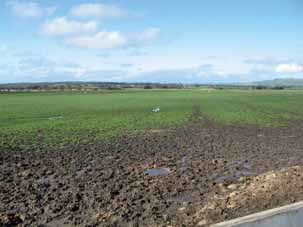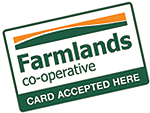 |
|
|
|
Issue 66 / Winter / August 2015
Hi #subname#
 Welcome to the August edition of Specialty Seed's SeedData Newsletter.
Welcome to the August edition of Specialty Seed's SeedData Newsletter.
I trust this edition finds you fit and well and ready to move into one of the busiest times of the year for farmers.. the Spring.
I was away for most of July but I noticed that there was very little rain in my rain gauge when I got back, although since I've come back its done nothing but rain and snow!!
I assume July was relatively dry. A dry July is normally a good thing and rain at this time of year is also a good sign let's hope that we all have the weather on our side at the least.
Another interesting thing for me is that we have now been into our new building in Rolleston for a year now. If you haven't called in please feel free to do so we would love to see you pop in for a cuppa.
In this edition of the Seedata newsletter I'd like to look at some North Island farmers costings when growing fodder beet for either grazing, lifting for your own farm and , lifting to sell. Also we will look at pasture pugging and the use of Tonic plantain in hill country renovation.
Please browse these topics below:

Fodder beet costing comparison
Below is a brief summary that I've extracted from some North Island farmer experience and costings on growing fodder beet vs other winter green feed types in the North Island.
This season farmers will need to look carefully at all their costings. Information like this is helpful as it's clear from the numbers below and any information I've seen on fodder beet, that if you aim to grow high yielding crops, the cost per kg of D/M with a high yielding fodder beet crop is very cheap in comparison with the more traditional winter feeds.
For more in-depth information please click on the DLF brochure link below on - Potential uses for fodderbeet in the lower North island and please feel free to contact us if you have any questions.
Download Link: View DLF's Potential Uses for Fodder Beet in the lower North Island brochure
Contact Link: Contact Specialty Seeds if you have any questions.
Back to top
 Repairing pugged pasture
Repairing pugged pasture
It's my view that over the next two to three years many of our clients will be looking very closely at the performance of their pasture paddocks.
It's well known that growing grass to feed their stock is the cheapest form of dry matter available to them.
Growing pasture sounds easy but as you all will know it's not! And in fact there are many issues that can compromise your overall pasture production.
Pugged pasture, causes, effects and remedies:
 I've obviously chosen pasture pugging for this article as at this time of year it tends to be at its worst.
I've obviously chosen pasture pugging for this article as at this time of year it tends to be at its worst.
Pasture pugging occurs when soil moisture conditions make it too soft to support the weight of animals that are grazing the paddocks and their hooves push into the surface. While farmers will stand stock off during these periods if the conditions persist then some pasture damage is inevitable.
The effects on pugged pastures are many and include reduced drainage, increased soil compaction and weed content, ryegrass plant tiller damage and a decrease in growth rate and canopy cover.
The most effective cure for badly damaged paddocks is simply reseeding them. While many of the traditionally used methods of repairing pugged pastures i.e. rolling and or harrowing have a positive effect on improving soil surface and water runoff they have no effect on DM production. Sub soiling also has been shown to improve plant root penetration and reduce compaction but it has little effect on DM production.
I suppose the reason for this is simply that once the pasture is damaged "you can't make a silk purse out of a pig's ear".
In trials the most cost effective way forward to improving pasture after pugging has been carefully managed reseeding using rapid establishing plants i.e. hybrid ryegrass types.
For more information on a successful reseeding program for your farm please feel free to contact us.
Contact Link: Contact Specialty Seeds for help repairing your pugged pastures.
Back to top
 Improving hill country
Improving hill country

Recently there has been a lot of focus on improving the production of our hill country areas as sheep and beef farmers are shifting onto hill country areas.
I recently read an interesting article about the use of Tonic plantain in this role that I thought I'd share with you. The story is about Brooklands Station in the Wairarapa, hope you enjoy.
If you have any questions on Tonic plantain or if you would like more information on this article please feel free to contact us.
Downloads Link: Click here to view the Farmlander download.
Contact Link: Contact Specialty Seeds if you have any questions.
Back to top

Back to top

 As always, we hope this issue has been of some value to you. If you have a comment on this newsletter or anything on our website, please give us a call on our Freephone: 0800 727 8873, send us an email at: mail@specseed.co.nz.
Kind Regards

Stephen Finch & David Percival
Specialty Seeds - New Zealand
|
|
|
|
 |
|
|

|
If you are having trouble viewing this email, .
If you would like to be removed from this newsletter please click here to
|
